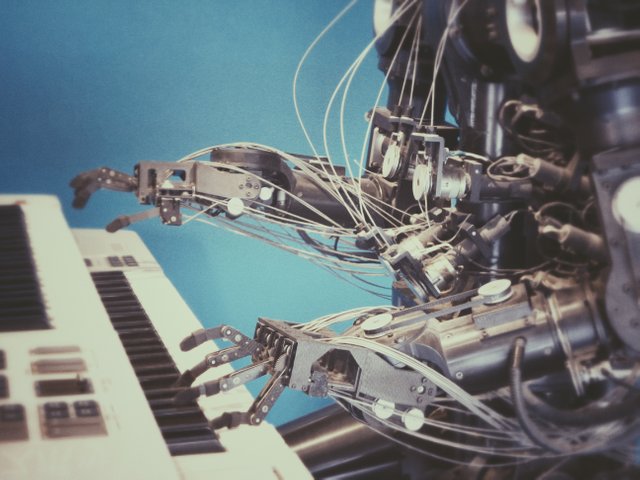Artificial Intelligence (AI) is rapidly changing the way we live and work, and its impact on the future of work and the job market is a topic of much debate and speculation. Many experts believe that AI will lead to the automation of a large number of jobs, while others believe that it will create new opportunities and change the nature of work.

One of the most significant impacts of AI on the future of work is the automation of tasks that are currently performed by humans. As AI technology continues to advance, machines will be able to perform tasks that were once thought to be the exclusive domain of humans, such as data analysis, customer service, and even medical diagnosis. This could lead to job losses in certain industries, as machines become more efficient and cost-effective than human workers.
However, it's not all doom and gloom. AI is also expected to create new job opportunities, particularly in fields related to technology and data analysis. As machines take on more routine tasks, humans will be freed up to focus on more complex and creative work. Additionally, the increasing use of AI in businesses and organizations will require a new set of skills, such as data analysis and programming, which will open up new career opportunities for those with the right skills.
AI is also expected to change the way we work, making it more flexible, efficient and productive. For example, AI-powered virtual assistants and chatbots can help employees to manage their workload and free up time for more important tasks. AI-powered automation tools can also help businesses to streamline their operations and reduce costs.

Another way AI is impacting the job market is by changing the skills that are in demand. With the increasing use of AI, there is a growing need for people with skills in data science, machine learning, and programming. This means that people with these skills will be more in demand and will be able to command higher salaries. On the other hand, people with skills that are easily replaced by AI, such as data entry and manual labor, may find themselves at a disadvantage in the job market.
One way to prepare for the changes brought on by AI is to invest in education and training to acquire new skills. For example, upskilling in data analysis, machine learning, and programming can help increase employability and make you more competitive in the job market. Additionally, it's important to stay informed about new developments in AI and understand the ways in which it is impacting different industries.
Another important consideration is the ethical and societal implications of AI and automation. As machines take on more tasks, it's essential to ensure that workers are not left behind and that there are adequate safety nets in place to support those who may be displaced by automation. Additionally, it's crucial to ensure that AI is developed and used in a way that promotes fairness, transparency and accountability.
In conclusion, AI is having a significant impact on the future of work and the job market. While it has the potential to automate many jobs and lead to job losses, it also has the potential to create new opportunities and change the nature of work. It's important to stay informed, invest in education and training, and consider the ethical and societal implications of AI and automation to navigate the future of work successfully.